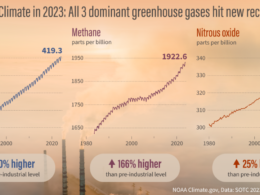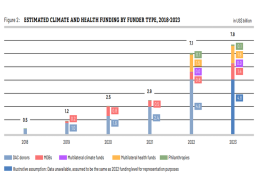A new review of carbon offset programmes warns that the voluntary carbon market (VCM) is plagued by systemic flaws which threaten its credibility—even as the world readies itself for post-COP29 climate regulation.
The article, titled “Are Carbon Offsets Fixable?”, published as an open-access review in Annual Review of Environment and Resources, is authored by Joseph Romm, Stephen Lezak and Amna Alshamsi. It systematically examines the literature on carbon offsets and finds that many of the most common offset programmes “greatly overestimate their probable climate impact,” sometimes by a factor of five to ten.
Key Findings: Overcrediting, doubtful integrity, unresolved challenges
The review highlights a number of enduring problems that continue to afflict the offset market:
- Overcrediting: Many offset schemes award more credits than they can credibly justify, inflating the apparent climate benefit.
- Additionality: Verifying that a project would not have occurred without the carbon finance remains a major challenge.
- Leakage and double counting: Emissions saved in one area may simply shift elsewhere, or be counted more than once.
- Permanence: The question of how long carbon storage must last—100 years? 1,000 years?—is unresolved.
- Verification and enforcement gaps: Weak monitoring and lax enforcement further undermine confidence.
- Environmental justice concerns: The review also flags issues of fairness and equity in how offset projects affect local communities.
Because of these persistent faults, many observers now regard overcrediting as an “intractable problem.” Indeed, the authors note that the VCM’s growth earlier this decade stalled in part due to these credibility concerns.
Implications for COP29 and the Paris Regime
Although COP29 advanced efforts to design a global compliance market for carbon credits, the review laments that it “did not substantially address the quality problem,” raising the risk that a future Paris-aligned market could replicate the very failures seen in voluntary schemes.
The authors warn that if the compliance market is built on shaky foundations, the voluntary market (VCM) could even undermine the credibility of Paris-era carbon trading.
Proposed path forward: Focus on high-integrity projects, change the incentives
Given the gravity of the flaws, the authors advise shifting focus away from the mass proliferation of offsets, and instead:
- Prioritise high-integrity carbon removal and storage — but with realistic standards for durability and permanence.
- Set stricter rules and vetting so that only a small subset of truly reliable projects qualify for credits.
- Use alternative financing strategies, including “contribution claims,” for essential activities like conservation, renewable energy and sustainable development, rather than turning everything into tradable credits.
If robust standards, enforcement and monitoring are not enforced, the authors argue, then even a reformed market may fall short of its climate ambitions.
Reaction and Significance
This review arrives at a pivotal moment. With nations preparing the governance rules for carbon markets beyond COP29, it injects a sharp warning to negotiators, regulators and corporates: the promise of offsetting must not be allowed to outpace the progress of integrity. Policymakers, certification bodies and the private sector must heed the caution: carbon offsets are not automatically reliable climate action—unless fixed thoroughly, they risk becoming liabilities, not solutions.





















